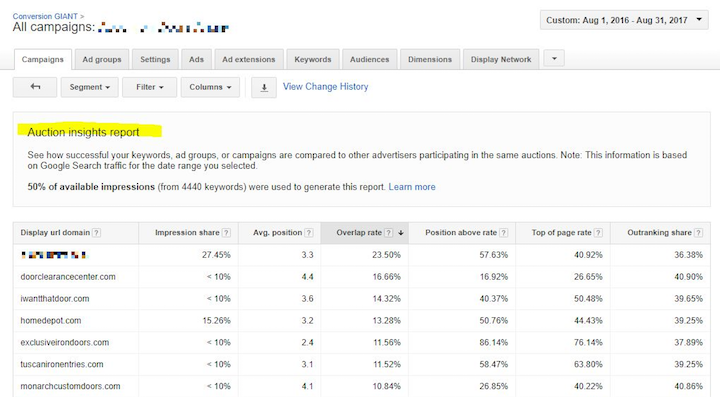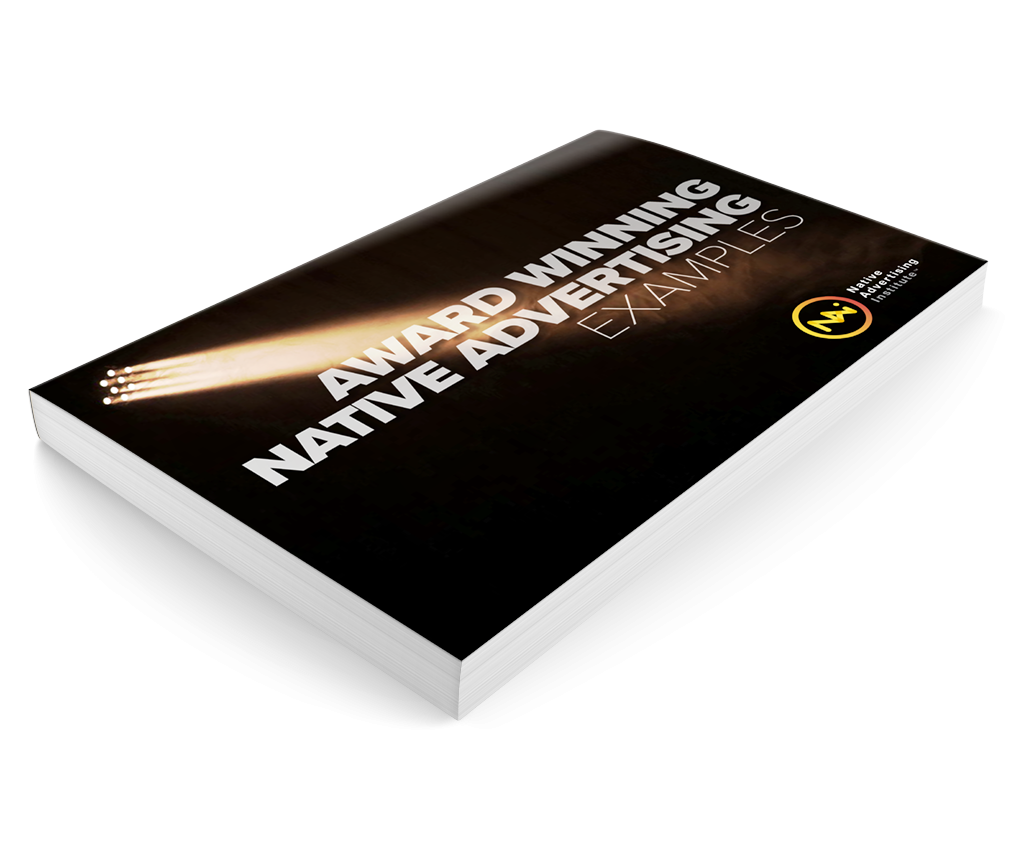 Details
Details

By Peter Dulay
Director of Conversion Giant
Los Angeles, USA
Connect
Over 63,000 Google searches are completed every second, which makes it very clear that businesses need to have a strong presence on search engines. Many brands probably wonder: Should we be focusing on organic search or pay-per-click (PPC) search advertising vs doing some form of display or infotorial?
The answer is both (if people search for your product). However, paid search campaigns have several advantages that allow advertisers to achieve more conversions in less time.
Here are 10 reasons why:
One of the most desirable attributes of running paid search ads is that your audience is already on a mission to find an answer or solution.
1. Intent
All individuals go through variations of the buyer’s journey leading up to a purchase. One of the most desirable attributes of running paid search ads is that your audience is already on a mission to find an answer or solution. Which indicates that they’ve fast tracked the buyer’s journey.
Of course, it’s up to you or your advertising partner to uncover what that intent is. Once it’s been established, and your advertising strategy is optimized, you can expect shorter buying cycles and higher transaction values from your campaigns.
2. More Relevant Traffic
When advertising on social media platforms, like Facebook, or placing display ads on the Google Display Network (GDN), you’ve got access to targeting tools. Experienced advertisers know that these targeting options don’t typically convert as efficiently as paid search. Here’s why:
Pitfalls of Display Network Targeting
We never really know our audience’s intent or pain points when running ads on the display network. The ads are often placed based on websites that align with topics and interests that advertisers think match their audience, but they’re not always relevant.
RELATED: How Paid, Owned and Earned Media Can Support Each Other
Pitfalls of Facebook Advertising Targeting
Similar to the pitfalls in GDN ads, Facebook makes data-driven assumptions in terms of their user’s interests. You’ll find that these are rarely 100% accurate.
For example, take a look at your personal ad preferences. See any that seem out of place? Creating your audience based on the interests you thought we’re relevant to your ideal customers can result in poor conversion rates as the user is not interested in the offer in your ad and continues to scroll.
In contrast, search ads allow you to target individuals that are interested in what your business has to offer, regardless of their interests. With display advertising, you’re putting ads in front of people you have reason to believe will convert, whereas search ads are presented to individuals already looking for a solution.
3. Filter Out Unqualified Traffic
The negative keyword function within AdWords allows advertisers to filter out unqualified traffic. Adding negative keywords to your campaigns and ad groups means your ads will not show up for an individual searching those selected terms.
BONUS: How to choose negative keywords
The best way to choose the negative keywords relevant to your business is to identify the queries which are bringing in traffic but aren’t converting. You’ll need a few weeks or months worth of data in order to see this insight.
For advertisers new to search ads, here are some examples of the types of negative keywords that can help you filter out wasted impressions and clicks:
- Employment - Terms like jobs, hire, hiring, careers, for hire, salary, resume
- Reviews - Terms like ratings, reviews, opinion
- Information - Phrases like “how do I”, “how to”
Not only will you avoid putting your ad in front of someone who’s not a fit for your business, but you’ll save money on any potential “accidental” clicks.
By improving the quality of your click-throughs, Google will reward you with a stronger Relevancy Score, which drives down your cost-per-click.
4. Stay Ahead of Competitors
In search ads, you’ll typically be stacked on top of or nearby your competitor’s ads, assuming that you’re both targeting the same keywords. But when it comes to branded keywords, if optimized properly, you could actually outrank your competitors for their own keywords.
You can easily find your competitors’ ads by using the Adwords feature: Auction Insights and doing your own searches and crafting your copy to provide a better offer, increasing the likelihood of a conversion.

5. More Accurate Queries
AdWords’ keyword matching options allow you to set the type on a query-by-query basis. The options are:
- Broach match - This is the default setting when setting up search campaigns. It includes misspellings, synonyms, related searches, and relevant variations.
- Broad match modifier - Shows results for searches that contain modified terms, but not synonyms.
- Phrase match - Matches searches with additional words before or after, but not in between or in a different order.
- Exact match - Can include reordered keywords if the meaning stays the same.
This means that you can better ensure that you’re capturing a wide audience. And the queries that are triggering your ads are extremely relevant to the searcher’s query.
RELATED: Who Should Own Paid Distribution in Content Marketing?
6. Ads Can Match a Query
The correlation between the keywords people search and the ad that’s triggered needs to be very strong. By creating separate ad groups in your search campaigns with very tightly matched keywords, you can craft your ad copy to be extremely relevant. Google rewards you with a higher Quality Score and reduces your CPC.
7. Better Control Over Costs
With search ads, you have the opportunity to optimize your bids on different dimensions, thus giving you more control over your clicks and costs.
You can increase or decrease your bids based on:
- Device
- Time of day
- Geography
- Query performance
Being able to raise your bid for the devices, times, locations, and queries that are resulting in conversions and decrease bids for those that don't help you achieve a better return on ad spend (ROAS). You get to control your spend more granularly.
8. Opportunity to Improve Rank
Your ad rank within search results is dependent on a variety of factors, all of which are in your control and can be improved. Your paid search rank is based on your bid, Quality Score, conversion rate, landing page experience, and expected click-through-rate (CTR).
This gives you control over whether your ads appear first, second, or third, by improving your efforts within each of these standards.
RELATED: The 2017 Native Advertising Technology Landscape
9. Better Control of Geographical Territory
If you're selling a product, there’s a good chance that your customers can be found nationally. But there’s is a subset of brands and services, that perform better in certain geographical territories. And sometimes the levels of performance vary for each area at different times of the year.
If you are a barbeque manufacturer, you would get your PPC ad budget cranked higher in January for states that mostly reside in warmer climate zones and February for colder climate zones. It’s still extremely cold across the country during January and February. That’s just when the research for barbeques start.
People in Southern California hardly know what mosquito curtains are. Someone selling them would get probably do very well in a low competition area like that.

Image Provided by MosquitoCurtains.com
10. Leverage the Data
You can improve your SEO efforts by leveraging the data you collect from your search campaigns. Analyze the queries that are driving conversions and optimize your website around those.
Uncover any red flags in your conversion optimization strategy using the data from your search campaigns. This is the most highly targeted traffic you’ll receive on your site from advertising efforts, so if your conversion rates are still suffering, it’s time to start investigating issues on your website.
You can also collect search term volume and bid competition from AdWords’ Keyword Planner to further improve your conversions.
There’s no time like now to start running paid search campaigns.
Bottom Line
Search ads are an integral part of any digital marketing strategy because they get results, fast. So if your conversion rate is falling short of your goals, there’s no time like now to start running paid search campaigns.
Be inspired – download ‘Award Winning Native Advertising Examples’
